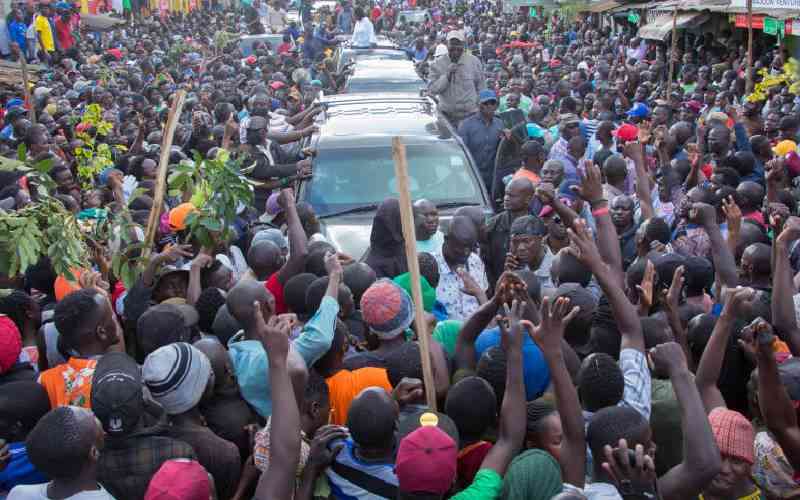×
The Standard e-Paper
Fearless, Trusted News

Monday, the second day of Raila Odinga's bi-weekly protests, was pivotal: It offered a clarity on the direction of the political battle between President William Ruto and Raila.
From now on, it seems, it will be an eye for an eye. Supporters of the ruling party, Kenya Kwanza, are apparently not ready to stand by and watch the opposition leader harass their leader. Of course, the country and ordinary citizens will bear the brunt of the consequences.